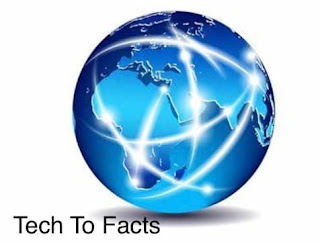Bob Kahn and Vint Cerf invented the Internet. They invent this awesome thing. Now the whole world is dependent upon their invention. Have you ever imagined a life without the Internet today? The answer is no. We are not spending a day without the Internet.
Computer & Internet Use in the United States (2021 Statistics)
According to research published today by the United States Census Bureau, changes in computer and internet usage in 2018 were examined. Using data from the American Community Survey (ACS), the study Computer and Internet Use in the United States: 2018 evaluates national, state, and county trends.
Over the last several decades, there has been a significant increase in people who use computers. Over time, the proportion of households who utilize the internet has also grown significantly. The internet has also influenced our professional lives, allowing us to work from the comfort of our own homes more often.
The data from the Contemporary Population Survey is used to offer historical background, while data from the American Community Survey emphasizes more current tendencies. For a secure internet connection, you can go through an internetbeskyttelse VPN.
Highlights
In 2018, 92 percent of all homes had at least one sort of computer, and 85 percent had a broadband internet connection, according to the Census Bureau. The American Chemical Society (ACS) classifies computers as desktops, laptops, tablets, smartphones, and some computing technologies such as smart home devices and single-board computers.
Ownership of smartphones has overtaken that of all other computer devices combined. Smartphones were found in 84 percent of homes, while desktop computers and laptop computers were found in 78 percent of households. Tablet ownership has fallen behind, with just 63 percent of people owning one.
More urban inhabitants than rural residents used computers (93 percent of urban households against 89 percent of rural households), and they were more likely to have some internet subscription (compared to 89 percent of rural households) (86 percent of urban households compared to 81 percent of rural households).
According to the study, homes with householders with higher levels of educational attainment had higher rates of internet subscription, than homes with more significant household income. Families with at least one impaired member were more likely to subscribe if the householder leased rather than owned a home, and households with inadequate English language proficiency were more likely to subscribe than other families.
In this study, more than half of all families (53 percent) had "high connectivity," which is defined as having a laptop or desktop computer, a smartphone, or a tablet, as well as a broadband internet connection.
Many homes had access to the internet via a home-based connection, but others depended on a mobile phone carrier and connected to the internet using a smartphone. According to the study, a smartphone was used exclusively by households with incomes of $25,000 or less, led by someone under the age of 35, or including a Black or Hispanic householder.
All of the data in this study is vulnerable to error due to sampling and nonsampling. Unless otherwise stated, comparisons of estimates take into account sampling error and are statistically significant at the 90 percent confidence level or above.
Because of rounding, certain information may not add up to the totals in the final totals. See the Accuracy of the Data papers for 2019 for information on sampling and estimate methodologies, confidentiality protection, sampling/nonsampling mistakes, as well as other topics.
What other Reads?
Rural Economic Growth through Broadband in 2020-2030
Improved infrastructure can increase GDP by over 5 billion dollars via increased rural economic growth and reduced rural unemployment. Broadband can spur new development in rural economies by expanding options for both firms and inhabitants.
Broadband can spur new growth in rural economies by increasing opportunities for businesses and residents alike. Expanding broadband connection can provide a significant economic boost to rural regions that are trying to keep up with a digital economy that has abandoned chiefly such places.
Read Also: Internet Use in 2021
Rural Economies Face Several Issues
Rural America is being confronted with a variety of unique issues resulting from a convergence of technical breakthroughs that are reshaping economies throughout the globe. According to the United Nations Development Program, increased automation in the industrial, agricultural, and manufacturing sectors, combined with the meteoric rise of the digital economy, has resulted in rural communities struggling to keep up economically with their urban and metropolitan counterparts.
According to the United States Department of Agriculture's 2019 Rural America At A Glance report, the Great Recession of 2007-2009 struck rural areas significantly more complicated than metropolitan areas. Rural communities are still battling to recover from the global economic crisis.
As a result of the recession, while metro areas have seen population increases, rural counties have seen population declines. Similarly, employment has increased in all areas of the United States except for most rural counties, and poverty rates have risen in rural counties that are more isolated than their urban and suburban counterparts since the recession.
According to the United States Census Bureau, the loss of rural America is primarily attributable to decreases in the industrial sectors that historically kept rural counties alive. Personal earnings in rural regions have declined due to job losses in agriculture, mining, and manufacturing.




